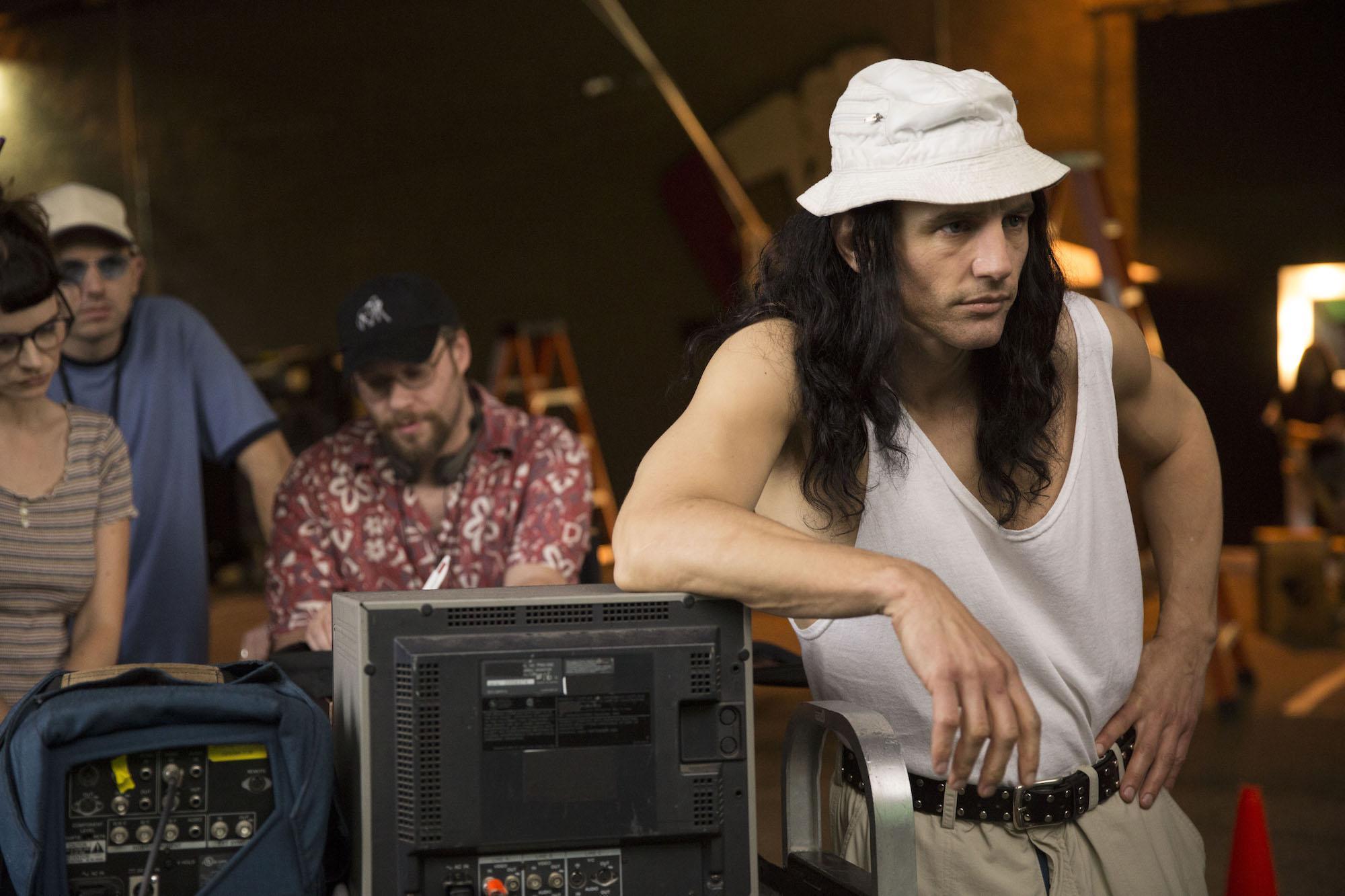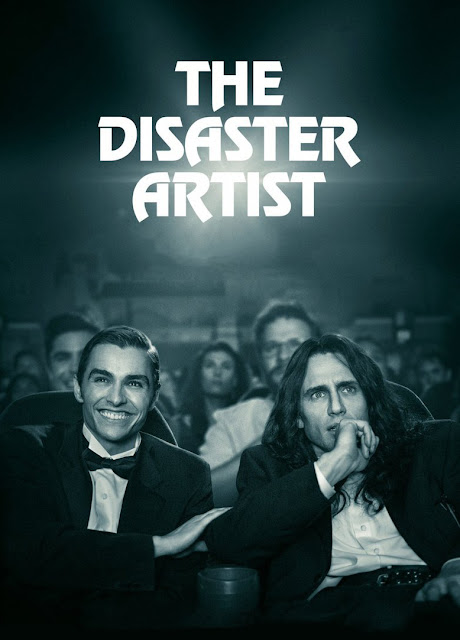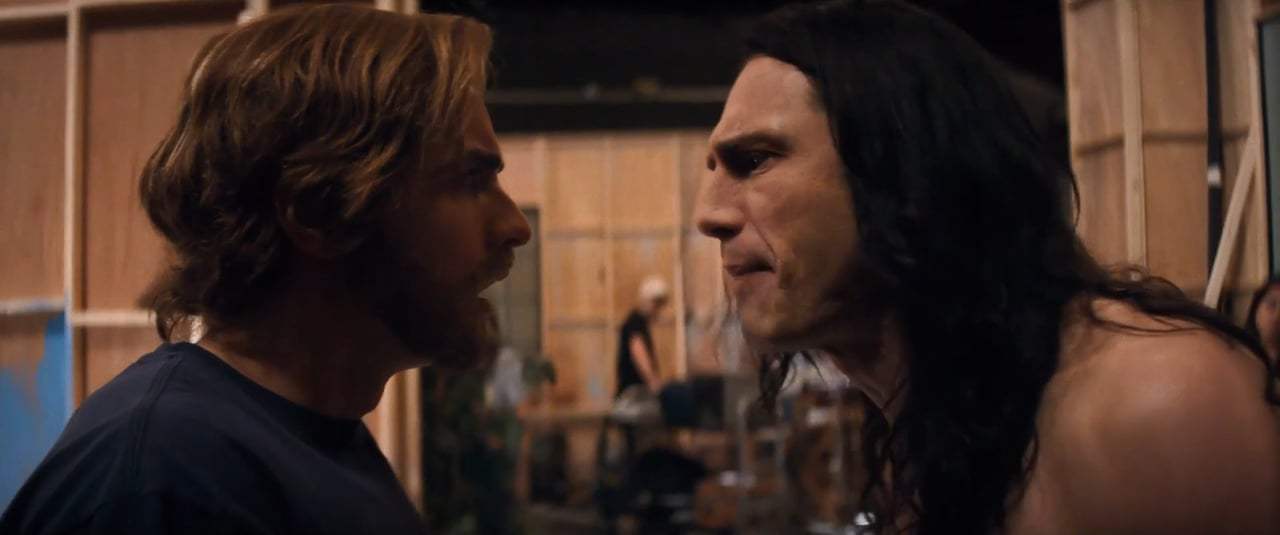The Disaster Artist Film Review
...Oh Hi Great Film!
While much of the contemporary cinema landscape is monopolised by formulaic superhero flicks and rehashes of already recognised franchises of old, occasionally, a film sprouts from the masses of hard film-making efforts and earns itself a devoted following that ever-so-slowly becomes recognised by the masses. This is, of course, referring to a cult film; a feature which may not have had initial success or acknowledgement at the box-office, but through audience appreciation, develops an adhered patronage which see's audience become devoted fans through repeated viewings, quoting of dialogue and participation through festivals. Indeed, for whatever reason, these otherwise distinct features end-up endearing themselves to a small but rabid fan-base, an ultra-committed branch of cinephiles who don't question the outlandishly weird context or formalities. Strange, obsessive and irreverent, cult films are very much like a weird underground discovery, it feels so strange yet wonderful at the same time that you suspect that you're the first person ever to appreciate it properly. This was certainly the case with Tommy Wiseau's The Room, a $6 million budget feature that from its 2003 cinematic opening, remains to be one of the most weirdly terrible films of the modern-age; complete with wholly bad-acting, continuity flaws and a side-story that doesn't have any bearing to the overall 'plot'. A movie such as this might seemed deemed for obscurity, but it eventually gained a cult following since it was a feature placed by audiences and critics alike in being something that is "so bad it's good" and has even now received more attention with the release of James Franco's The Disaster Artist; a biographical comedy-drama based on Greg Sestero and Tom Bissell's non-fiction book of the same name. Through scenes of comical and emotional intrigue, the film diligently chronicles the making of Wiseau's 2003 feature-film in a way that is poignant yet charming and delicately illustrates the creative process of making a film.
In recounting the many cases and scenarios that made-up the making of The Room, The Disaster Artist centres its story around Greg Sestero, a young and aspiring film actor, who wants to one day see himself on the big-screen. In struggling to fulfil his dreams however, he one day meets the weird and mysterious Tommy Wiseau in an acting class and soon, the two acting hopefuls form a unique friendship and both travel to Hollywood to make their shared dream, into a reality...
 In contrasting the optimistic buoyancy seen in viscerally uplifting features such as Singin' in the Rain, Begin Again and La La Land where we're presented with a set of characters that aspire to fulfil their dream in being either a music or acting star, James Franco's interpretation of events that comprised the making of The Room within this rather melancholic filmic account in The Disaster Artist not only displays a premise that upholds this idea of Hollywood abiding to the ambitious dreamers in a manner that is respectfully grounded and meaningfully tragic, but dramatically showcases the creative process of film-making in a way that incites the aforementioned contextual motif. Indeed, from the moment in which Wiseau begrudgingly approaches producer John Apatow, who tells the dismantled wannabe that "Just because you want it, doesn't mean it's going to happen", to the ghoulishly uncomfortable sequence where Wiseau mistreats The Room's co-star Juliette Danielle in an infamously excruciating sex scene, which results in Tommy exclaiming "Was Stanley Kubrick nice to actors?" towards Greg and the rest of the displeased film-making crew, Franco boldly exhibits the harsh realities of the cinematic world and portrays Wiseau in a complex fashion that is not only noticeably amusing and rather outlandish, but also seen as a tragic and despondent soul who's efforts and persona heinously laughed-away. By the end, in which we see Wiseau's gleamed facial expressions slowly deteriorate from the callous laughter of others at the premiere of The Room, it's imperative to note that, alongside the discernible comical notions of Wiseau's peculiar personality, there's also an estranged sadness to the said figure which inherently prompts an unexpected sympathy towards him and what he so desperately wants to achieve. Parallel to James Franco's own topsy-turvy career as an actor, it's an affectionately handled portrait of a difficult man which is handled with a great amount of respect and admiration. More touching is the films crux of Wiseau's rather paradoxical relationship with Greg and how even though they both have the same dream, it's their methods of achieving that aspiration and the rather oddly 'close' chemistry they have with one another that serves as the platform for these feelings sentiment. In similar vein to how both the characters of Ray and Ken share a father-and-son partnership within Martin McDonagh's In Bruges, there are moments between Wiseau and Greg which mirror this same paradigm; particularly when Tommy acts like a toddler when he see's Greg with his new girlfriend.
In contrasting the optimistic buoyancy seen in viscerally uplifting features such as Singin' in the Rain, Begin Again and La La Land where we're presented with a set of characters that aspire to fulfil their dream in being either a music or acting star, James Franco's interpretation of events that comprised the making of The Room within this rather melancholic filmic account in The Disaster Artist not only displays a premise that upholds this idea of Hollywood abiding to the ambitious dreamers in a manner that is respectfully grounded and meaningfully tragic, but dramatically showcases the creative process of film-making in a way that incites the aforementioned contextual motif. Indeed, from the moment in which Wiseau begrudgingly approaches producer John Apatow, who tells the dismantled wannabe that "Just because you want it, doesn't mean it's going to happen", to the ghoulishly uncomfortable sequence where Wiseau mistreats The Room's co-star Juliette Danielle in an infamously excruciating sex scene, which results in Tommy exclaiming "Was Stanley Kubrick nice to actors?" towards Greg and the rest of the displeased film-making crew, Franco boldly exhibits the harsh realities of the cinematic world and portrays Wiseau in a complex fashion that is not only noticeably amusing and rather outlandish, but also seen as a tragic and despondent soul who's efforts and persona heinously laughed-away. By the end, in which we see Wiseau's gleamed facial expressions slowly deteriorate from the callous laughter of others at the premiere of The Room, it's imperative to note that, alongside the discernible comical notions of Wiseau's peculiar personality, there's also an estranged sadness to the said figure which inherently prompts an unexpected sympathy towards him and what he so desperately wants to achieve. Parallel to James Franco's own topsy-turvy career as an actor, it's an affectionately handled portrait of a difficult man which is handled with a great amount of respect and admiration. More touching is the films crux of Wiseau's rather paradoxical relationship with Greg and how even though they both have the same dream, it's their methods of achieving that aspiration and the rather oddly 'close' chemistry they have with one another that serves as the platform for these feelings sentiment. In similar vein to how both the characters of Ray and Ken share a father-and-son partnership within Martin McDonagh's In Bruges, there are moments between Wiseau and Greg which mirror this same paradigm; particularly when Tommy acts like a toddler when he see's Greg with his new girlfriend.
This hint of melancholy and tragedy is essential to The Disaster Artist's message of stardom and the corrupt nature of the film-making industry. Yet, as with The Room, comical gestures and laughter hardens our gaze and is a tool of means that makes us want to know more of the making of said film and the people who were involved in its making. Of course, while it's not entirely essential to have seen The Room before The Disaster Artist, it certainly enriches the viewing experience by doing so as it not only prompts the longstanding questions that intrigued fans of the 2003 film have pondered over, but it revisits iconic and eccentric familiar sequences that are hilarious to fathom. The endless retakes of Wiseau forgetting his "I did not hit her!" speech for instance, is a pertinent example of this and it's a sequence within the film that is handled with hilarious perfect. Everything from the way in which the montage timely goes back-and-forth from the perspective of Wiseau to Greg and the rest of the film-making crew is nothing short of illustrious; ironically hallmarking the "Would that it were so simple" scene from the Coen Brothers' Hail, Caesar! In adding documentary-esque intertitles of the number of days The Room was made, of course there's this comically potent aura that subtly ensnares you to the events that unfold, but it's the fact that you know these circumstances actually happened, that makes the depicted sequences that much more enjoyable and amusing to watch.
As stated before, it's ironic really how both the ambitiously deluded Tommy Wiseau and James Franco, who enacts the mysterious actor, both mirror one another in terms of their careers as actors. Of course, Franco himself has been involved with a plethora of different features that have seen him earn the spotlight. However, it's fair to say that both of these performers share a similarity in the sense that they've known the cruel hardships that follow when exposing yourself to all soughts of different audiences and demographics. Indeed, Franco's filmic career has had its interesting and uneventful turns, and still, he proves his capability and profession by imitating a cinematic cult figure in a manner that's transfixing to perceive. There's no going around the notion that he is staggeringly good here, almost unrecognisable as Wiseau nailing his strange yet innate mannerisms, unusual voice and awkward laughter whilst imbuing and insecure likeness that effortlessly masks the idiosyncratic bravado. In terms of the actual character itself, what's peculiar to ponder over, which many fans of The Room have always wondered, is the background of Tommy; where was all this lustrous wealth coming from to support the film-making? Where exactly is he from other then claiming he's from New Orleans? Never to be answered and only hinted at, these important facts are withheld from our perspective and, in return, this unknowing satisfaction inevitably results into mysticism; an allegorical account of 'truths' that leave you sceptical and wanting to know more. It's even uncomfortable for the likes of Greg, exceptionally portrayed by Dave Franco, who bemoans his enigmatic background and, eventually, seeks to find stardom in the form of a different method. Aside the performance of the two Franco's and how the crux of their intertwined enactment of Tommy and Greg holds The Disaster Artist in a believable account, it's the dazzle ensemble of the smaller roles that heightens the elucidated world that's put together. From Seth Rogen's performance as the script supervisor for Wiseau's film to the many cameo appearances shown, including Bryan Cranston who plays himself, the large cast outside of the two Franco brothers fully contribute to this stale and slanted edge that Hollywood possesses and enhances one the main films messages in believing in ones self as an artist; regardless of what naysayers may say.
Indeed, Wiseau's precarious and fickle nature allow us to generate big laughs and grins, but it's the manner in how The Disaster Artist captures the eccentric actors unusual account of life and the stoic recreations of The Room's infamous scenes that accentuates these comical upbringings. Whether we're seeing Wiseau take-on some of the industry's more unpleasant traits by showing-up late to a day of filming, or when the film focuses its attention on accurately re-creating a sequence from The Room, best exemplified in the post-credits side-by-side demonstration, The Disaster Artist can be seen as technical master-craft in appreciation whilst projecting moments that feel real. In combination with Franco's scarily authentic enactment of Wiseau, there are times when it feels as though you're watching a documentary-flick; in terms of how the curious and ever-shaky cinematography pans across the film sets and whenever a character is walking somewhere.
While it's a shame that James Franco's film in The Disaster Artist only received one Oscar award nomination for Best Adapted Screenplay, which is a shame considering the said director/actor performs a distinctive interpretation of the ever-peculiar Tommy Wiseau and arguably deserves a nod for Best Actor, the aforesaid feature can be still considered as one of the better films to have come out in 2017 due to its complexity in dramatically documenting an eccentric figure in cult cinema through a humorous yet touching vision. For those who are un-acquainted with The Disaster Artist's premise, the question they'll have will be, how could a film so oddly incompetent ever exist in completed form? Through the interchangeable relationship that both Wiseau and Greg have with one another and the scenes of pure hilarity and tragedy, it's a question that Franco's film tries to grapple with and answer by faithfully projecting an interpretation of the enigmatic Wiseau and his film of The Room in a respectful and alluring manner. By the time the films concludes, you'll be wanting to know more of these individuals and what they respectively went on to do. As much as it's obvious to deduce The Disaster Artist in being a highly dramatised and comical depiction of an actor ambitiously trying to become a star, which is exhibited in a grounded and oddly believable way, it can't go unnoticed how curiously the film in question drives forward these unanswered questions of Wiseau in a manner that's mysteriously spooky...
On that note, it's time for to end this weeks film review. As always everyone, thank you for reading my latest film review of The Disaster Artist and I hope you've all enjoyed the read! 😉 If anyone has an opinion on either my review or on the film itself, you're more than welcome to comment your thoughts down below. As some of you may have noticed, this is the first time I've done a film review in a long while. One of the reasons why I've been absent for so long, is due to the fact that I've been working on an exciting task, of which I hope to share with you all soon. Non the less, it feels good to be back into the swing of things! 😁From here, everything is going back to way it was and for next week, I'll be back with another film review. Thank you once again for reading my latest film review and coming back to my Blog. I'll see you all sometime next week! Adieu! 😊👋😎
8/10 - Alex Rabbitte



Comments
Post a Comment